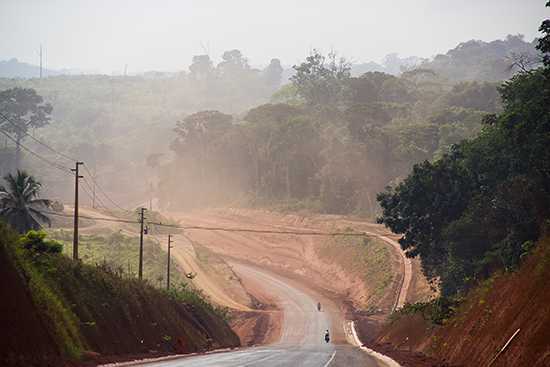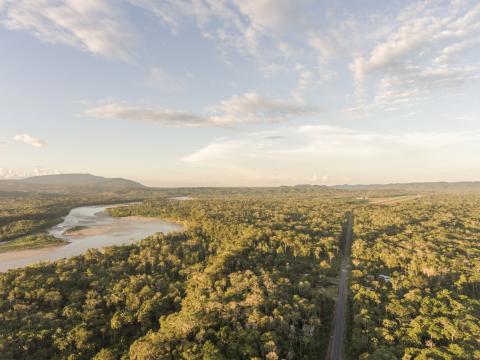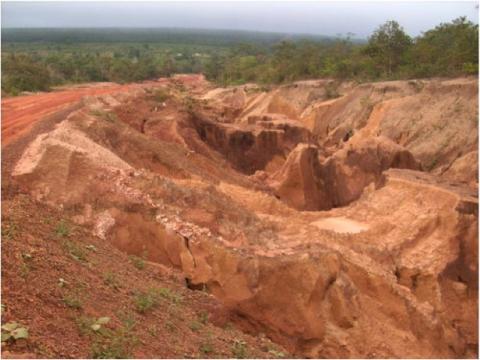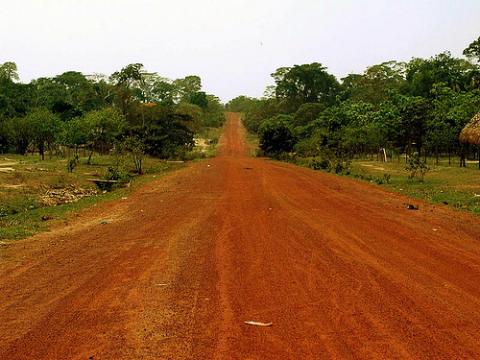Conservation Strategy Fund Leads Landmark Study on the Risks and Returns of Planned Road Projects in the Amazon

New study finds that half of Amazon road projects lack economic justification
With the generous support of the Gordon and Betty Moore Foundation, Conservation Strategy Fund (CSF) and its partners — Amazon Environmental Research Institute (Instituto de Pesquisa Ambiental da Amazônia, IPAM) and the Foundation for Conservation and Sustainable Development (Fundación para la Conservación y el Desarrollo Sostenible, FCDS) — recently completed a study analyzing the economic, environmental and social impact of 75 planned road projects in the Amazon. Published in the journal, Proceedings of the National Academy of Sciences of the United States of America (PNAS), the study found that roughly half, or 45%, of planned road projects would cost more to build and maintain than the benefits they would generate.
“Even when we don’t consider the socio-environmental impacts, almost half of the projects are economically unfeasible,” explains CSF Senior Economist Thaís Vilela, the lead author of the scientific article. “These projects should be excluded, or at least reevaluated by the governments.” Historically, governments and development banks have prioritized the expansion of Amazon road networks in order to reduce transportation costs and increase regional connectivity and development. Yet many proposed road projects do not have basic economic feasibility analyses, and even fewer account for the potential negative socio-environmental impacts.
Research focused on 75 highway projects covering over 12,000 kilometers across Bolivia, Brazil, Colombia, Ecuador and Peru. If completed, these roads would require a total investment of $27 billion USD and result in the deforestation of 2.4 million hectares over the next 20 years. Through their research, the study’s authors found that selecting a smaller subset of carefully chosen roads could deliver 77% of the economic benefits at 10% of the socio-environmental cost. In addition, by cancelling the road projects that had no economic justification, the country governments could prevent 1.1 million hectares of deforestation and avert $7.6 billion USD in wasted funding for development projects.
The results of the study demonstrate that it is possible to generate large economic returns at a lower environmental and social cost, meaning that well-designed projects can still reduce transportation costs and support regional development. As Vilela concludes, “Where projects have a positive economic return, it’s important that the governments, and the people, determine the acceptable level of environmental and social loss in exchange for economic gain.” Through continued engagement with decision-makers and stakeholders, the authors will use the study’s findings to better inform the decision-making process for new infrastructure and advocate for road planning that concurrently balances economic growth with the conservation of natural resources.
To learn more, please read the full paper “A better Amazon road network for people and the environment." The policy brief (in Spanish) is available here. The full journal article in PNAS is here.
- Log in to post comments





